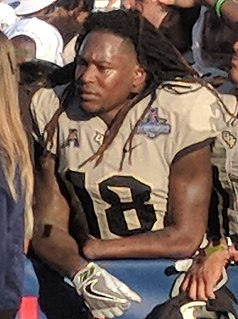A Quote by Lorrie Moore
It was not miserable - often I did not miss her at all. But there was sometimes a quick, sinking ache when I walked in the door and saw she was not there. Twice, however, I'd felt the same sinking feeling when she was.
Related Quotes
For hours she danced and sang and flirted and did this thing that's-she did Marilyn Monroe. And then there was the inevitable drop. And when the night was over and the white wine was over and the dancing was over, she sat in the corner like a child, with everything gone. I saw her sitting quietly without expression on her face, and I walked towards her but I wouldn't photograph her without her knowledge of it. And as I came with the camera, I saw that she was not saying no.
There must be another life, she thought, sinking back into her chair, exasperated. Not in dreams; but here and now, in this room, with living people. She felt as if she were standing on the edge of a precipice with her hair blown back; she was about to grasp something that just evaded her. There must be another life, here and now, she repeated. This is too short, too broken. We know nothing, even about ourselves.
I love Elizabeth Taylor. I'm inspired by her bravery. She has been through so much and she is a survivor. That lady has been through a lot and she's walked out of it on two feet. I identify with her very strongly because of our experiences as child stars. When we first started talking on the phone, she told me she felt as if she had known me for years. I felt the same way.
And so when Mrs. Darling went back to the night-nursery to see if her husband was asleep, all the beds were occupied. The children waited for her cry of joy, but it did not come. She saw them, but she did not believe they were there. You see, she saw them in their beds so often in her dreams that she thought this was just the dream hanging around her still.
She came into a room; she stood, as he had often seen her, in a doorway with lots of people round her. But it was Clarissa one remembered. Not that she was striking; not beautiful at all; there was nothing picturesque about her; she never said anything specially clever; there she was however; there she was.
But what I kept wondering about is this: that first second when she felt her skirt burning, what did she think? Before she knew it was candles, did she think she'd done it herself? With the amazing turns of her hips, and the warmth of the music inside her, did she believe, for even one glorious second, that her passion had arrived?
The doctor's wife wasn't a bad woman. She was sufficiently convinced of her own importance to believe that God actually did watch everything she did and listen to everything she said, and she was too taken up with rooting out the pride she was prone to feeling in her own holiness to notice any other failings she might have had. She was a do-gooder, which means that all the ill she did, she did without realizing it.
Even when I was a little boy, when I was seven, I absolutely loved Wonder Woman, and I saw her as one of the superhero greats with Superman and Batman, and I think it's because she was her own thing. She always felt like the real deal the same way that Superman and Batman did. Whereas the She-Hulks and Spider-Women and all that kind of thing felt like a continuation of a concept.
Calling it a simple schoolgirl crush was like saying a Rolls-Royce was a vehicle with four wheels, something like a hay-wagon. She did not giggle wildly and blush when she saw him, nor did she chalk his name on trees or write it on the walls of the Kissing Bridge. She simply lived with his face in her heart all the time, a kind of sweet, hurtful ache. She would have died for him.





































